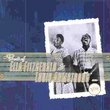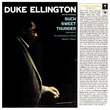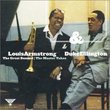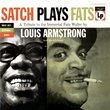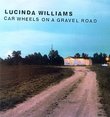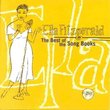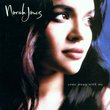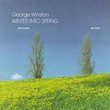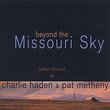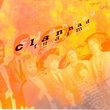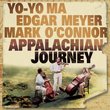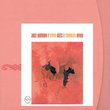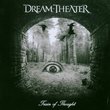| All Artists: Louis Armstrong and His All-Stars Title: Louis Armstrong Plays W.C. Handy Members Wishing: 1 Total Copies: 0 Label: Sbme Special Mkts. Release Date: 2/1/2008 Genres: Jazz, Pop Styles: New Orleans Jazz, Traditional Jazz & Ragtime, Vocal Jazz, Dixieland, Vocal Pop Number of Discs: 1 SwapaCD Credits: 1 UPC: 886972327228 |
Search - Louis Armstrong and His All-Stars :: Louis Armstrong Plays W.C. Handy
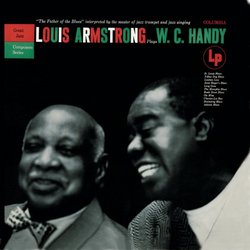 | Louis Armstrong and His All-Stars Louis Armstrong Plays W.C. Handy Genres: Jazz, Pop
|
Larger Image |
CD DetailsSimilar CDs
Similarly Requested CDs
|
CD ReviewsThe Best Louis Armstrong album Joshua Banker | Clovis, CA | 12/26/2008 (5 out of 5 stars) "I was never a huge fan of Louis Armstrong because the most I knew about him was the song "What A Wonderful World", though I like that song I had heard it so many times it kind of got on my nerves. At the time I wasn't aware of the fact that Louis was a trumpet player. In the 90s I became interested in big band music thanks to spending hours talking with my grandma about the good ol' days. Through my research I became a huge fan of Duke Ellington's music. One album that had become my essential favorite was Duke's one meeting with Louis Armstrong's band on the album "The Great Summit". Because of that album I wanted to learn more about Louis Armstrong and this album came highly recommended so I purchased it and it too has become one of my essential favorites. The story of how this album came about as documented in the liner notes are almost as interesting as the music. To sum it up Long player records at the time were still new and the record execs were trying to come up with a good use of this "new" technology. One person suggested to come out with a W.C. Handy album. Handy was pretty much the founder of the blues. During the early part of the 20th century he documented many traditional songs and original compositions and played them live but there is very little actually recorded by Handy. In 1950 do to being blind he was no longer able to play but Louis Armstrong was recommended to perform his classic songs because he was a fan of Handy's and had played many of his songs over the years. It also helps that Handy was a great admirer of Louis work as well. For the fans of Louis' trumpet work it is very prominently showcased here and sounds incredible. For the fans of his voice he and vocalist Verma Middleton are all over this as well. These songs are very enjoyable and fun to listen to and you can tell that Louis loves these songs because you can hear in his voice that he had a lot of fun creating this documentation of Handy's work. This collection I believe is an essential for classic jazz fans and even if you don't consider yourself a Louis Armstrong fan you may want to check this out because this album converted me. Also the sound is incredible. It was mastered from a collector's LP because the original masters were damaged and you would never know it because it sounds like it was recorded yesterday." Armstrong Plays Handy Robin Friedman | Washington, D.C. United States | 06/15/2009 (5 out of 5 stars) "The reading of a new biography, "W.C. Handy: The Life and Times of the Man who Made the Blues" (2009) by David Robertson inspired me to revisit Handy's music in this recording by Louis Armstrong and his All-Stars. Originally issued in 1954, the recording became an international best-seller. Handy himself heard and loved it. The recording has been reissued several times and it is offered in this new release at a bargain price. Armstrong and his musicians offer a joyful, urbane improvisatory and highly rhythmical account of Handy's most famous songs. Armstrong is at the center of this album with long, imaginative solo flights on his trumpet in every number. Velma Middleton and Armstrong do the singing. This CD is regarded as one of the best in Armstrong's (1901 -- 1971) long career.
W.C. Handy (1873 -- 1958) was a band leader and composer who became attracted to the blues when he heard a rural musician play with the "sadness of the ages" at a railroad station in 1903 in Tutwiler, Mississippi. His most famous composition, "St Louis Blues" dates from 1914. It initially received little attention, but beginning in 1920 it became, with the possible exception of "White Christmas" the most recorded song in the Twentieth Century. The song is a mixture of blues, tango, and ragtime. Armstrong made two earlier stellar recordings of this work, the first in 1925 with Bessie Smith and the second in 1929. The song has been done in many ways. This 1954 recording is fast, angular and highly rhythmical. In the reading, "St Louis Blues" becomes almost a rock song. It opens with a lengthy virtuosic solo by Armstrong on the tango theme of the piece (which accompanies the words "St. Louis woman! with all her diamond rings). Middleton takes the vocal solo in a low, laid-back voice that contrasts with Armstrong's horn. Armstrong and Middleton trade some banter followed by a pulsating return of the theme with the band. This is a swinging, upbeat and convincing performance of Handy's classic. The "St Louis Blues" has eclipsed some of Handy's other songs. Handy's works which deserve to be better known include "Memphis Blues", "Yellow Dog Blues", "Beale Street Blues" and "Aunt Hagar's Blues", all of which receive inspired hard-driving performances from Armstrong. The "Memphis Blues", was Handy's first blues composition which he wrote for a political campaign in 1909. Handy later foolishly sold the copyright to this song for $50.00. The "Yellow Dog Blues" incorporates the line "Goin where the Southern Cross the Dog", which Handy heard repeated from the lone rural blues singer he encountered at Tutwiler in 1903. "Beale Street Blues" celebrates what has been called "The Captiol of Negro America" in Memphis, Tennessee where Handy spent his most productive years as a composer. This song rivals "St. Louis Blues." The wonderfully evocative "Aunt Hagars Blues" captures the reaction of many African Americans to the beat of blues and ragtime. This CD also includes "Chantez Les Bas", a late Handy composition based on New Orleans Blues. The only instrumental in this compilation is "Ole Miss" which features solos by pianist Billy Kyle and drummer Barrett Deems. "Loveless Love", "Hesitating Blues" and "Atlanta Blues" are Handy arrangements of earlier folk material. Armstrong and his musicians play in a rousing spontaneous way with a feel for Handy. This CD is essential for lovers of jazz or the blues. Robin Friedman" |

 Track Listings (16) - Disc #1
Track Listings (16) - Disc #1